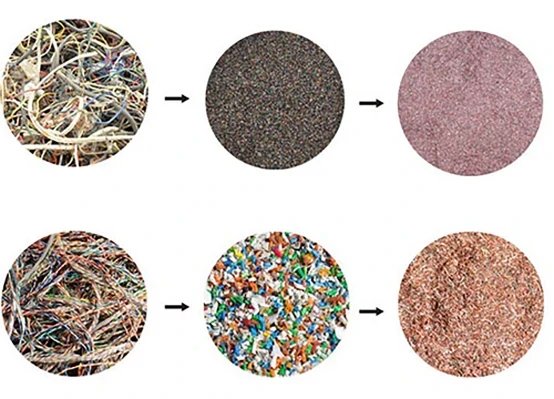

Kas . 09, 2024 01:44 Back to list
The Importance of Scrap Metal Processing Plants
In an age where sustainability and environmental consciousness are paramount, scrap metal processing plants play a critical role in promoting recycling and resource conservation. This industry is not only essential for reducing waste but also for providing a steady supply of raw materials that are needed for various manufacturing processes. In this article, we will explore the significance of scrap metal processing plants, their operations, and the benefits they offer to society and the economy.
Understanding Scrap Metal Processing Plants
Scrap metal processing plants are facilities designed to collect, sort, and recycle metal waste. The types of metals processed can range from ferrous metals, such as iron and steel, to non-ferrous metals, including aluminum, copper, and brass. The processing plants work by receiving scrap metal from various sources, including industrial manufacturers, construction sites, vehicle scrap yards, and even households. Once the metal is collected, it undergoes a series of processes that include sorting, shredding, and melting, ultimately transforming scrap into reusable metal.
The Recycling Process
The recycling of scrap metal is an intricate process that ensures maximum recovery of materials. First, the scrap is sorted by type and grade, which is crucial for maintaining quality in the final product. Advanced technologies, including magnetic separation for ferrous metals and eddy current systems for non-ferrous metals, are often employed to enhance efficiency and accuracy during the sorting phase.
Once sorted, the scrap metal is shredded into smaller pieces, making it easier to melt. The shredding process significantly reduces the volume of the metal, allowing for more efficient transportation and processing. After shredding, the metal pieces are melted in large furnaces, where they can reach high temperatures to ensure that impurities are eliminated. Finally, the molten metal is poured into molds, cooled, and solidified, ready to be sold as ingots or other forms for manufacturing industries.
Environmental Benefits

One of the most significant advantages of scrap metal processing is its positive impact on the environment. By recycling metal, these plants help to reduce the amount of waste that ends up in landfills. Furthermore, recycling metal uses considerably less energy compared to extracting and refining ore from the earth. For instance, recycling aluminum saves up to 95% of the energy required to produce new aluminum from bauxite ore. This energy savings translates into lower greenhouse gas emissions, contributing to the fight against climate change.
Additionally, mining activities have detrimental effects on the environment, including habitat destruction, soil erosion, and water pollution. By utilizing scrap metal, the industry reduces the need for mining new raw materials, promoting a more sustainable use of natural resources. This shift towards recycling represents a crucial step in fostering a circular economy, where materials are kept in use for as long as possible.
Economic Advantages
Scrap metal processing plants also offer significant economic benefits. They create thousands of jobs in various fields, from manual labor to engineering and logistics. Moreover, they contribute to the local economies by providing a steady supply of affordable raw materials for manufacturers, which can lower production costs and support economic growth.
The process of recycling also generates revenue through the sale of scrap metal to various industries, including automotive, construction, and electronics. This financial incentive encourages more businesses and consumers to participate in recycling efforts, creating a culture of responsibility towards waste management and resource conservation.
Conclusion
In conclusion, scrap metal processing plants are vital to our modern economy and environment. By facilitating the recycling of metals, these facilities play a crucial role in reducing waste, conserving natural resources, and lowering energy consumption. As society continues to focus on sustainability, the importance of scrap metal processing plants will only grow, making them indispensable players in the journey towards a more circular and eco-friendly economy. Embracing and supporting these facilities is essential for a greener future, ensuring that we leave behind a healthier planet for future generations.
Latest news
Troubleshooting Common Eddy Separator Problems
NewsJul.04,2025
The Role of Metal Recycling Plants in Circular Economy
NewsJul.04,2025
The Impact of Recycling Line Pickers on Waste Management Costs
NewsJul.04,2025
Safety Features Every Metal Shredder Should Have
NewsJul.04,2025
How Industrial Shredders Improve Waste Management Systems
NewsJul.04,2025
How Cable Granulators Contribute to Sustainable Recycling
NewsJul.04,2025